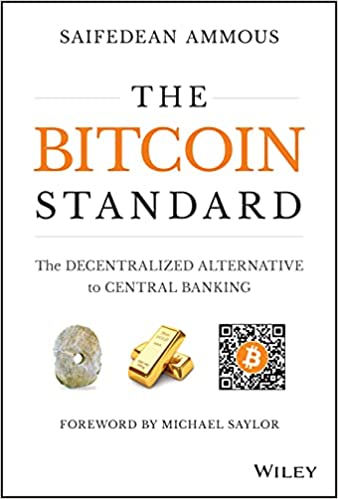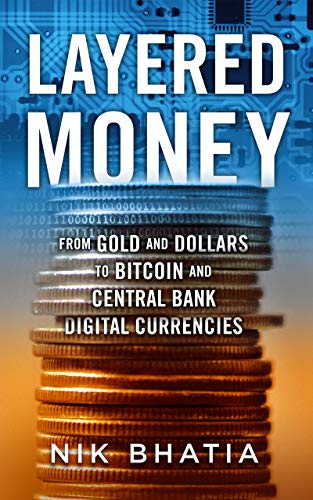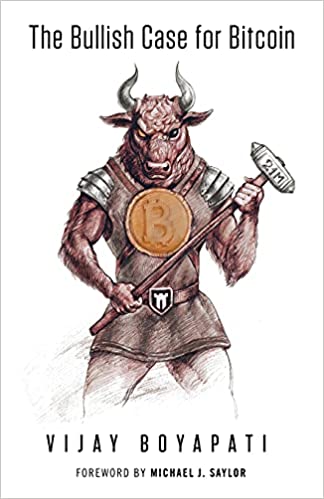BITCOIN RESOURCES
My Top Book Recommendations
My Top Video Recommendations
My Top Article Recommendations
List of Services
-
Our Most Brilliant Idea by Robert BreedloveItem Link List Item 4
Ideas ambulate humanity across history. A new and useful idea is an innovation, which can benefit everyone for the rest of time. Therefore, it is critical we construct socioeconomic structures conducive to the creation of new ideas: civilization can only advance amid an everlasting flow of fresh knowledge. Free trade is the means by which we maximize ideation and its physical manifestation: wealth creation. Anything that impedes trade—like central banking—is (by definition) a terrible idea. Contrarily, all accelerants to free trade—like money—are among the most brilliant ideas we’ve ever had.
-
Money, Bitcoin and Time: [Part 1 of 3] by Robert BreedloveMoney, Bitcoin and Time: Part 1 of 3 by Robert Breedlove List Item 1
Human beings are the networked species. Initially, these were small bands of hunters and gatherers numbering no more than 150 persons strong (Dunbar’s number). When humans began to exchange with one another, they intuitively discovered the division of labor which allows people to focus on their relative advantages and concentrate on their chosen craft. The division of labor enables the specialization of productive efforts for mutual gain. If John makes axes faster than Steve, and Steve makes bows faster than John, then they both are better off by specializing and trading. Interestingly, this holds true even if John is faster than Steve at making axes and bows (up to a point) and, amazingly, this effect compounds.
-
Bitcoin Obsoletes All Other Money by Parker LewisItem Link List Item 2
When it comes to bitcoin adoption, there are generally two rules that never seem to fail. Everyone always feels late, and everyone always wishes they had bought more bitcoin. There are exceptions to every rule, but bitcoin has an uncanny ability to screw with the human psyche. It turns out that 21 million is a scarily small number, and it actually becomes smaller as more individuals come to understand that the fixed supply of bitcoin is credibly enforced and that monetary networks converge on a single medium. Demand for bitcoin is driven by the credibility of its monetary properties and the convergent nature of money, but increasing demand for bitcoin reinforces the scarcity of bitcoin’s fixed supply. As it does, bitcoin becomes more valuable as a monetary medium. While this becomes evident the further down the bitcoin rabbit hole one travels, it is not uncommon for individuals on the periphery to be overwhelmed by the sheer number of cryptocurrencies. Sure, bitcoin is in the “lead” today, but there are thousands; how do you know bitcoin is not MySpace? How can you be sure that something new doesn’t overtake bitcoin?
-
Masters and Slaves of Money by Robert BreedloveItem Link List Item 3
Money is a tool for trading human time. Central banks, the modern-era masters of money, wield this tool as a weapon to steal time and inflict wealth inequality. History shows us that the corruption of monetary systems leads to moral decay, social collapse, and slavery. As the temptation to manipulate money has always proven to be too strong for mankind to resist, the only antidote for this poison is an incorruptible money — Bitcoin.
-
Bitcoin is Common Sense by Parker LewisItem Link
These were the opening remarks of Thomas Paine’s call for American independence in early 1776. At the time, a declaration of independence was far from a certainty, but in Paine’s view, there was no question. It wasn’t a debate; there was only one path forward. Still, he understood that public opinion had not yet caught up and naturally remained anchored to the status quo, with a preference for reconciliation rather than independence. Old habits die hard. The status quo has a tendency of being defended, regardless of merit, merely by its anchoring in time to the way things have always been. However, truths have a way of becoming self-evident in time, more often due to common sense rather than any amount of reason or logic. One day, the truth is more likely to smack you in the face, becoming painfully obvious through some firsthand experience which opens up a perspective that otherwise would not have existed. While Paine was undoubtedly attempting to persuade an undecided populous with reason and logic, it was at the same time an appeal to not overthink that which stands in opposition to what is already self-evident.




